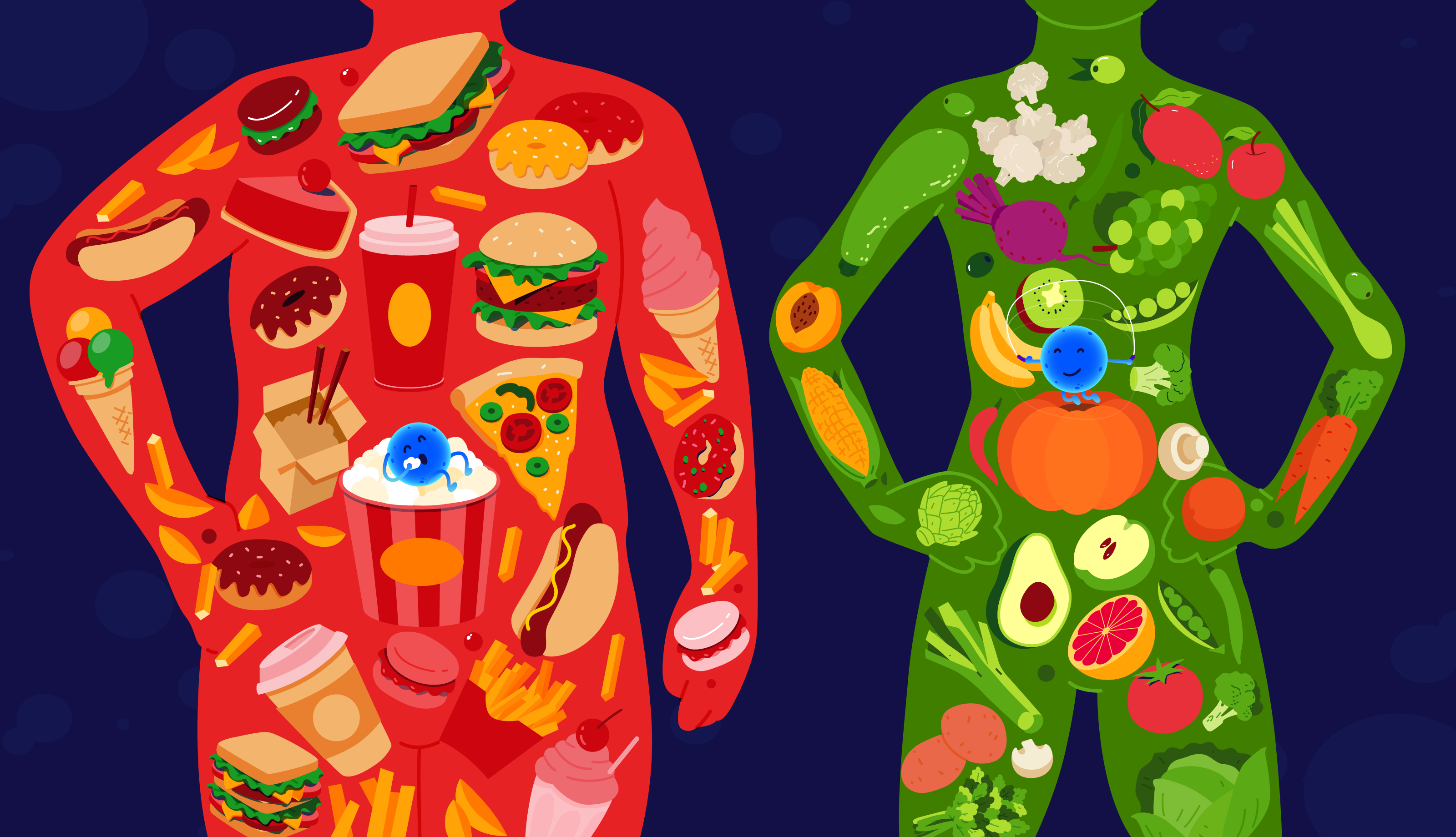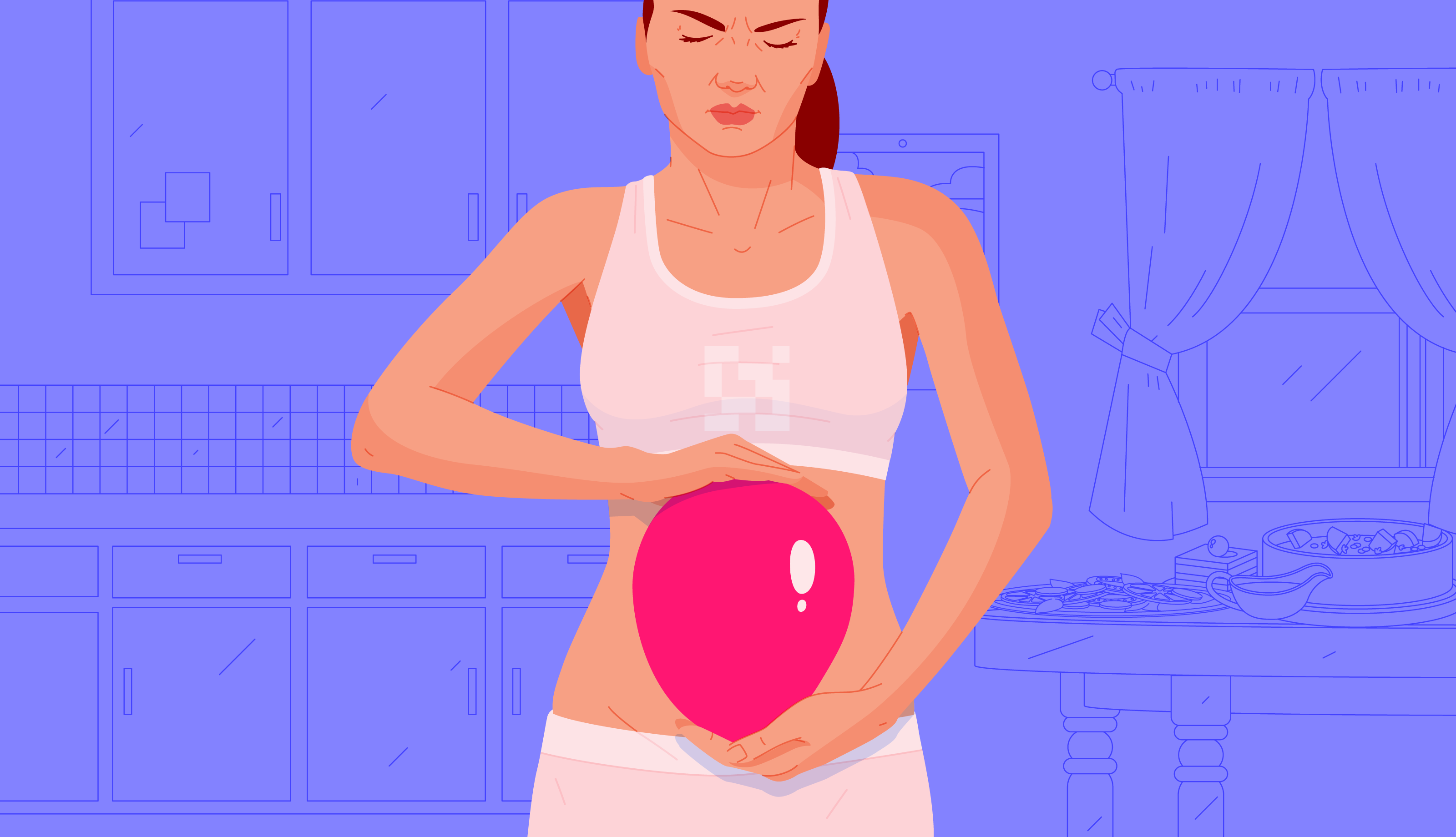When you have long term constipation, your gut is telling you that something needs to change. Discover nine common causes of constipation and when to ask a doctor.
Table of contents
- 1. Dehydration and constipation
- 2. Low-fiber diets and constipation
- 3. Fiber and bowel movements
- 4. Constipation and weight gain
- 5. Bloating and constipation
- 6. Flatulence and constipation
- 7. Cancer and constipation
- 8. Anxiety and constipation
- 9. The thyroid-constipation pathway
There are few things worse than not having regular bowel movements, yet constant constipation is a surprisingly common problem that is rarely talked about. From extreme constipation to causes of severe constipation and the constipated face you make when your gut is on strike, we’ve got you covered.
Chronic constipation symptoms are diagnosed by doctors who look at several different parameters. The visual appearance and texture of your stool is of primary importance because a major sign of constipation is hard and lumpy stools that often involve prolonged periods of straining to evacuate.
Most common causes of constipation
| Dehydration | Anxiety and stress |
| Low-fiber diet | Low thyroid function |
But that’s not all, to be considered “constant constipation”, this must happen for a period of six months or more. Fortunately, there are many common causes of chronic constipation, so there could be things you can change in your diet and lifestyle to make your life better.
1. Dehydration and constipation
Stool is formed in the large intestine (a.k.a. the colon) after the contents of your meal have been broken down and absorbed in your small intestine, but that’s not all that happens. Water also cycles through your colon throughout the day.
Hard and lumpy stools are a trademark sign of the constantly constipated, and they are telling you that too much water has been out of your bowel contents, leaving them drier, harder, and more difficult to pass.
Make sure you are drinking enough water each day, especially if you work out or live in a hot, dry climate because getting dehydrated may be the answer to your question: why am I so constipated? The recommended daily intake of water is two liters per person, that’s equal to eight large glasses of water per day.
2. Low-fiber diet causes functional constipation
Fiber is found in plant foods like vegetables, fruit, seeds, nuts, legumes, and whole grains. What’s fascinating about fiber is that it aids bowel movements in many different ways, which is why low-fiber diets are always at the top of the list for chronic constipation causes.
However, most people don’t eat anywhere near the daily recommended amount of fiber per day (30g for adults). As a result, they experience the symptoms of constipation because their stool lacks the bulk, mass, and water needed to help it pass through the bowel with ease.
☝️TIP☝️ Your gut bacteria influence bloating and constipation. See how they are doing with the Atlas Microbiome Test.
3. Fiber and regular bowel movements

There are different types and classifications of dietary fiber, starting with soluble and insoluble. Soluble fiber absorbs liquid, creating a gel-like texture that improves the consistency of your stool and helps it glide through the colon. Insoluble fiber adds bulk to your stool that helps the muscles of your gut lining to drive the stool towards the exit.
Within the insoluble and soluble fiber groups, there are actually over a dozen different subcategories of fibers. Several of them provide nourishment to gut bacteria in your intestine that support gut health by helping the intestinal lining to work optimally.
4. The constipation–weight gain link
Constipation and weight gain can actually go hand-in-hand in some cases. In the short-term, you will probably weigh a few hundred grams more if you are constipated because your bowel is full of digested food. Just remember that this is rather insignificant because it hardly impacts your overall body weight.
These foods also lack fiber and can seriously slow down the transit of food through your bowel. To the question: “can constipation cause weight gain”, the answer is no, constipation does not cause weight gain.
5. Bloating and constipation

Bloating usually happens when you have gas trapped in your gastrointestinal tract. It causes your abdominal area to swell in a visible manner. However, many people also use bloating to describe an uncomfortable feeling of fullness that can happen when serious constipation happens.
You might just feel full and uncomfortable because you haven’t had a proper bowel movement in several days. But you still have to eat, and what you eat can make you feel worse. Some foods and beverages can cause gas to build up in the stomach, like fizzy drinks, or lower down in the intestine, like beans, which are famously gassy.
You can help relieve bloating associated with regular constipation by avoiding foods that make you gassy and opting for fiber-rich and liquid-rich foods, like a simple vegetable soup, to rehydrate and add bulk to your stool for relief.
6. Flatulence and constipation
If you’re feeling bloated, constipated, and like you’re about to pop, then it’s quite a normal situation. As we mentioned above, some foods can increase the gas levels in your digestive tract, and that gas has to go somewhere: belching and farting can help relieve the pressure build-up.
The gut microbiome is now believed to be an important factor in many aspects of your health, including how well your lower digestive system works, especially since good bacteria produce substances that help keep the colon healthy. One company in the UK, Atlas Biomed, offers gut microbiome testing to help people find out what’s going on with their bacteria to help relieve constipation and flatulence.
7. Is constipation a sign of cancer?
Constipation alone is not a sign of cancer, but being constipated all the time is still something serious that should be addressed. Chronic long-term constipation increases the risk of bowel cancer, a common cancer that middle-aged and elderly people are particularly susceptible to. If you have suddenly noticed constipation and weight loss, you should speak to your doctor.
Signs of colon cancer and other serious abdominal problems that you need to look out for are permanent changes in your bowel habits (a change to either diarrhea or constipation), as well as bloody stool, weight loss, and persistent tummy pain, like gas and cramps. If you have several of these symptoms, don’t wait – contact your doctor for diagnostic testing.
8. Anxiety and constipation

Some people get diarrhea when they’re stressed, and others get constipated when faced with difficult events. Even small things can set off anxiety constipation, like exams and job interviews. So, essentially, yes, anxiety can cause constipation.
Your gut and your brain are connected by your nervous system, so how you feel influences what your digestive system is doing. When something causes stress, your body’s first reaction is to shut down all unnecessary systems, like digestion and sexual organs, so it can redirect its energy towards the fight-or-flight response.
This response can cause frequent constipation if you are more sensitive to the environment around you because your body may be on the lookout for potential “threats”. This evolutionary response prevented you from getting eaten by predators, but in modern society, your body may be misinterpreting these cues. Try mindfulness and relaxation to tone down your stress response.
9. The thyroid-constipation pathway
Hypothyroidism constipation may also help explain why constipation can make you tired. When thyroid function is low, you might also be lethargic and have muscle weakness. Other symptoms of hypothyroidism include brittle nails, sensitivity to cold, and weight gain. Speak to your doctor if you have constipation and other symptoms because it might be a thyroid problem.
The final word on persistent constipation
Doctors know how to cure chronic constipation permanently when it’s related to your lifestyle, and it starts with drinking enough water and eating a fiber-rich diet. Here’s exactly what you need to remember about long-term constipation so you can manage it effectively:
- Straining and long periods between bowel movements are signs of constipation
- Long-term chronic constipation may increase the risk of colon cancer
- Your thyroid produces hormones that support healthy digestion and defecation
- Anxiety triggers the stress response that can make people constipated
- Diet, hydration, and exercise can help relieve constipation
- Your gut bacteria influence constipation and digestive health



















